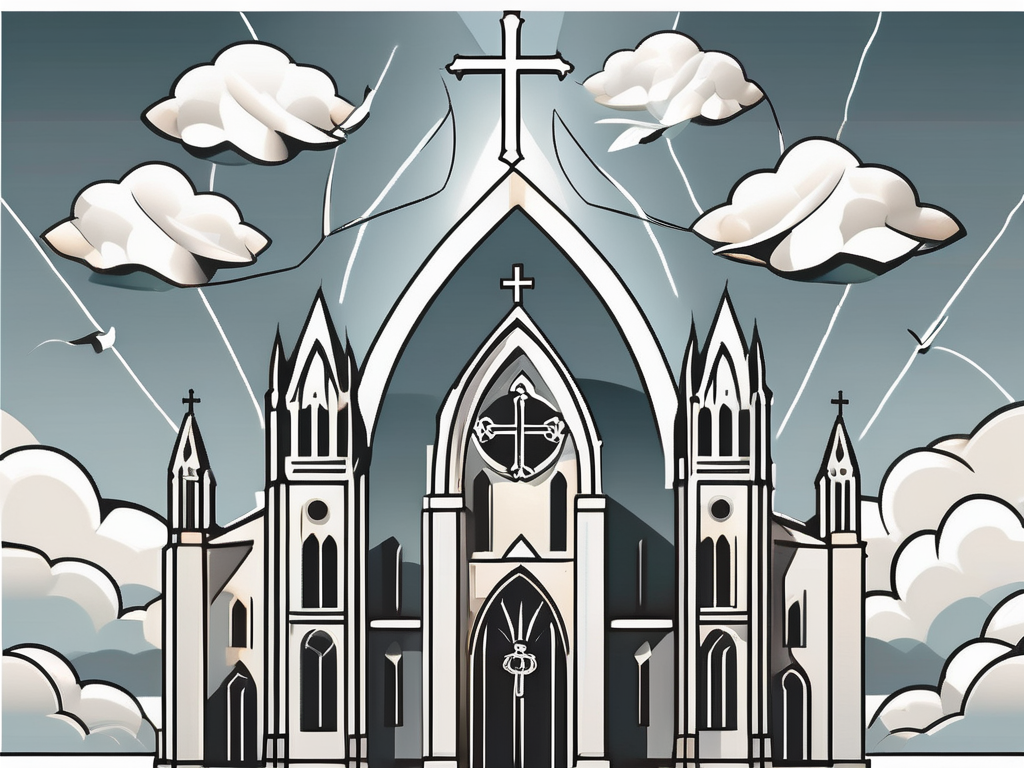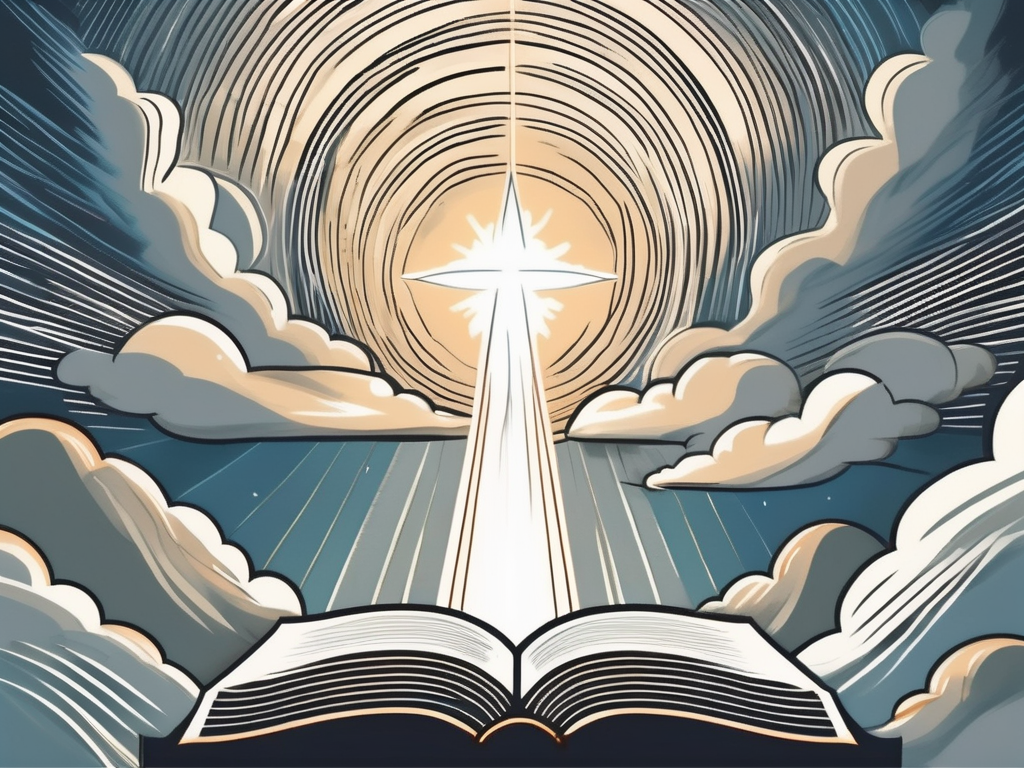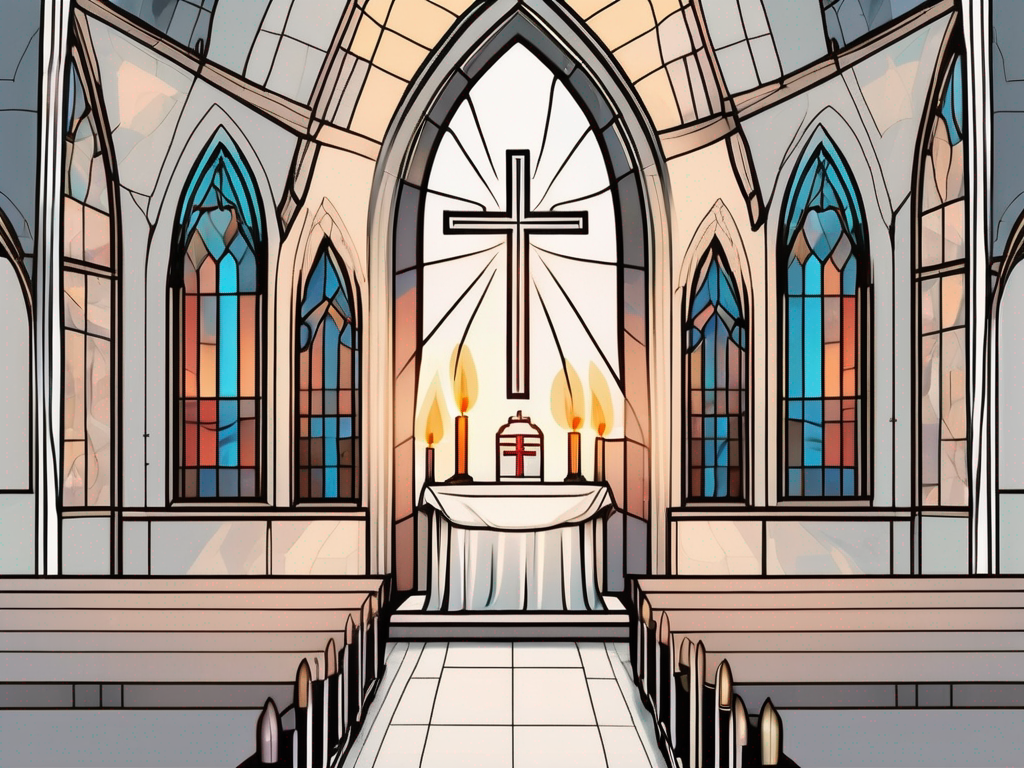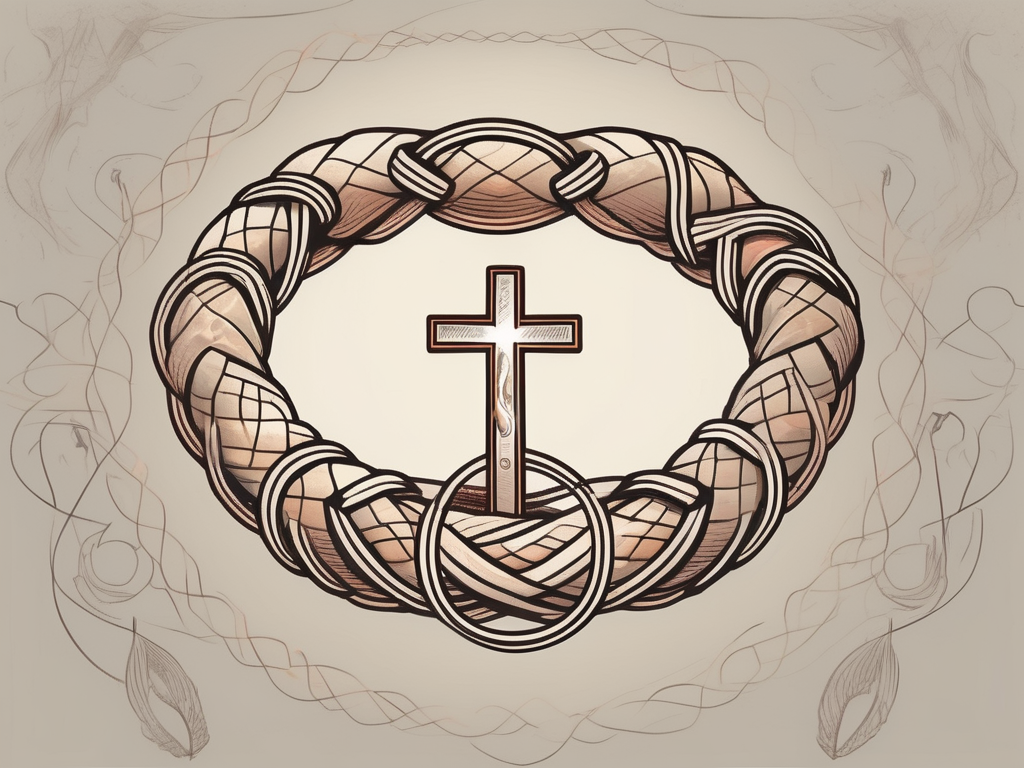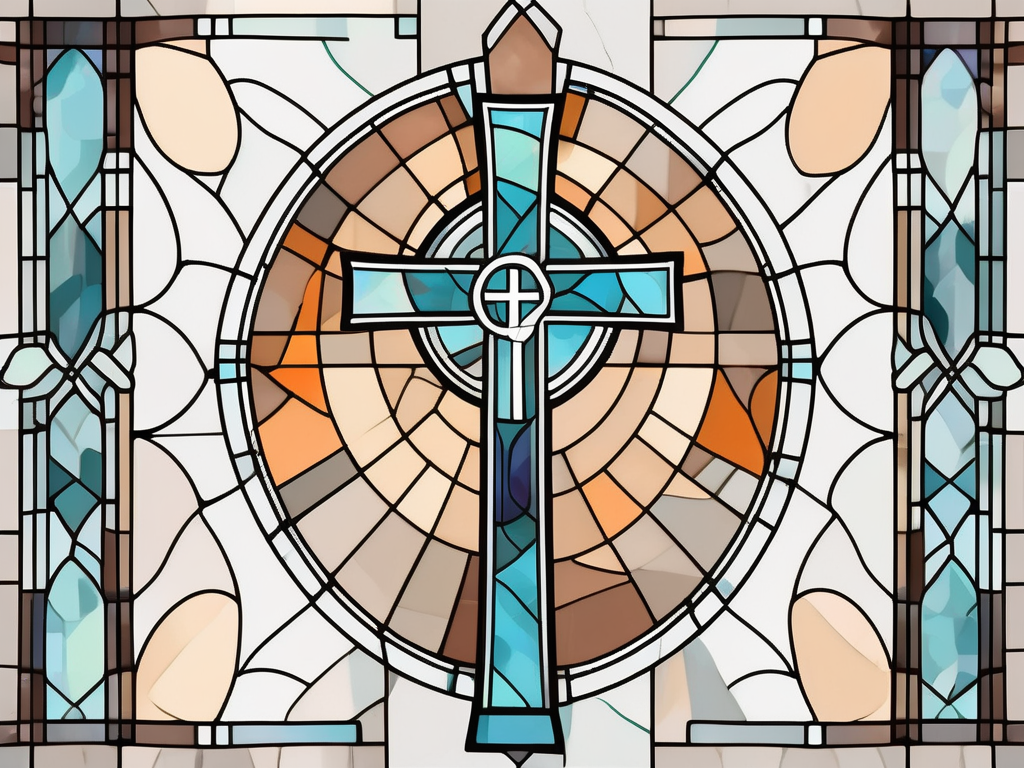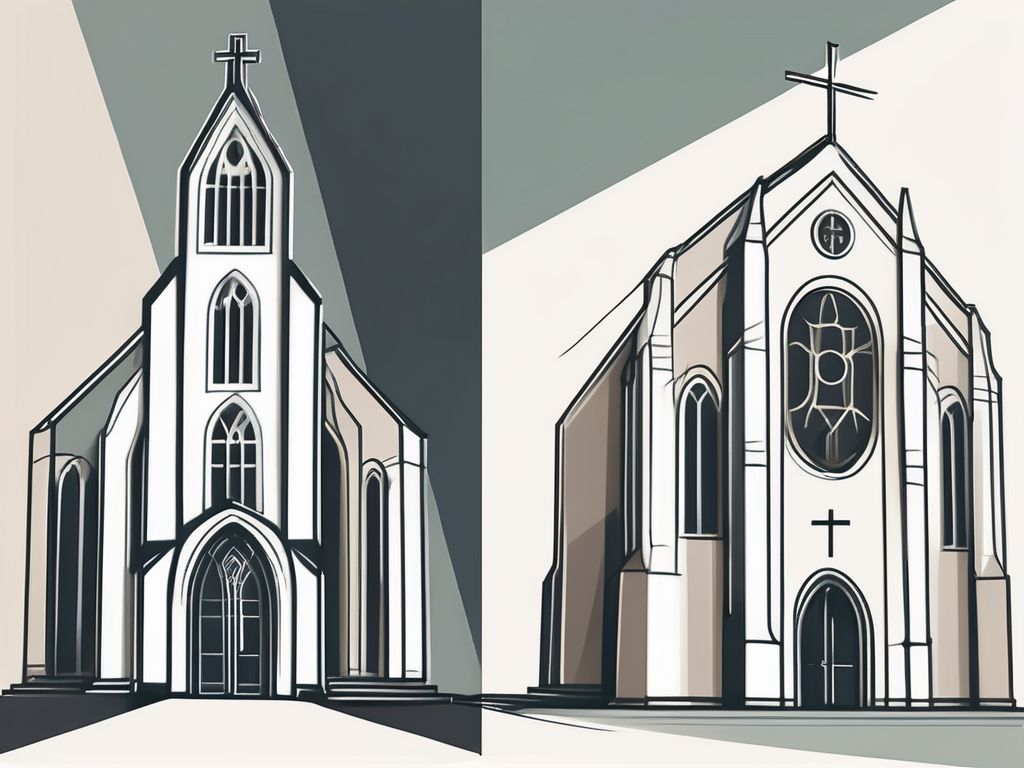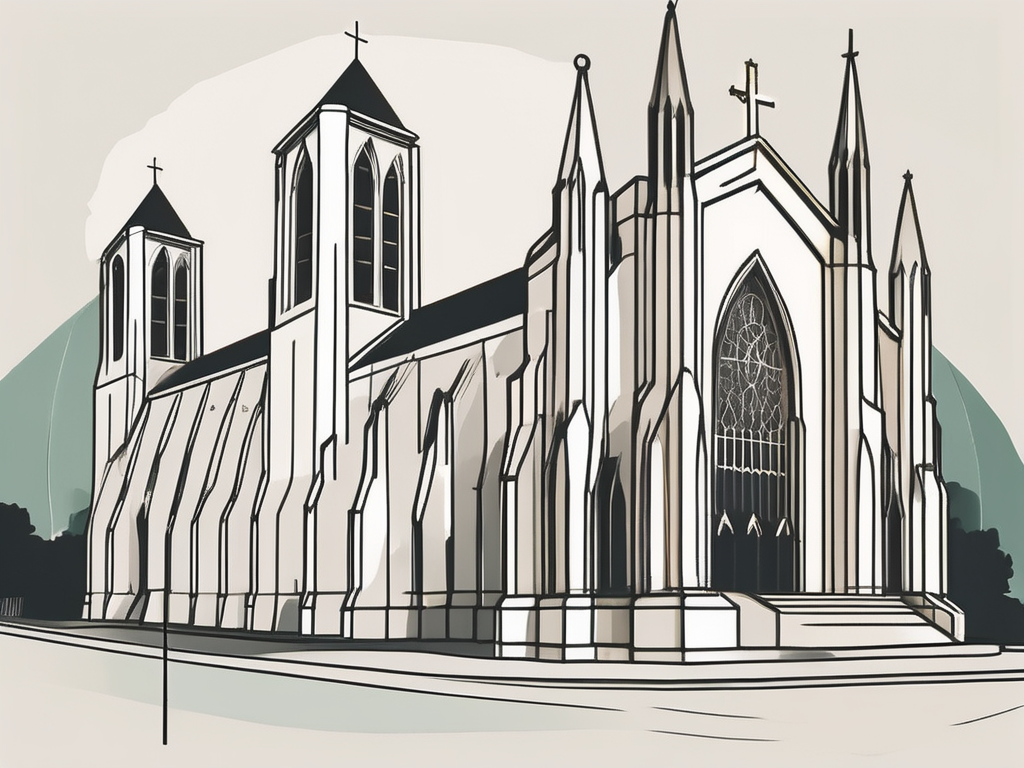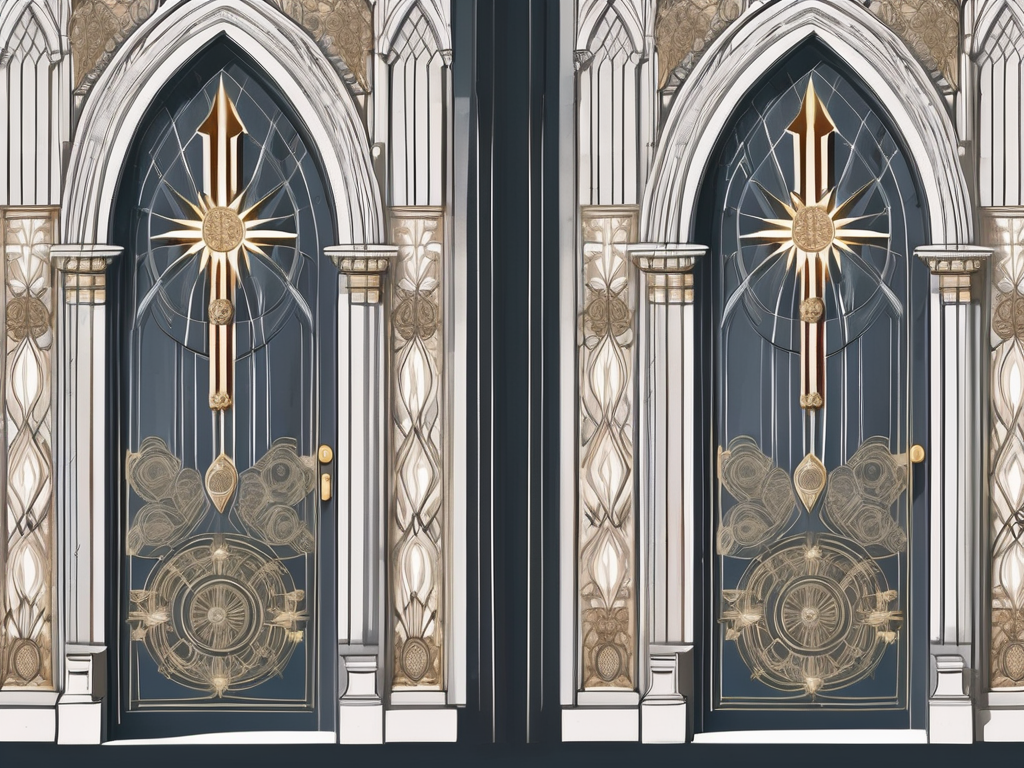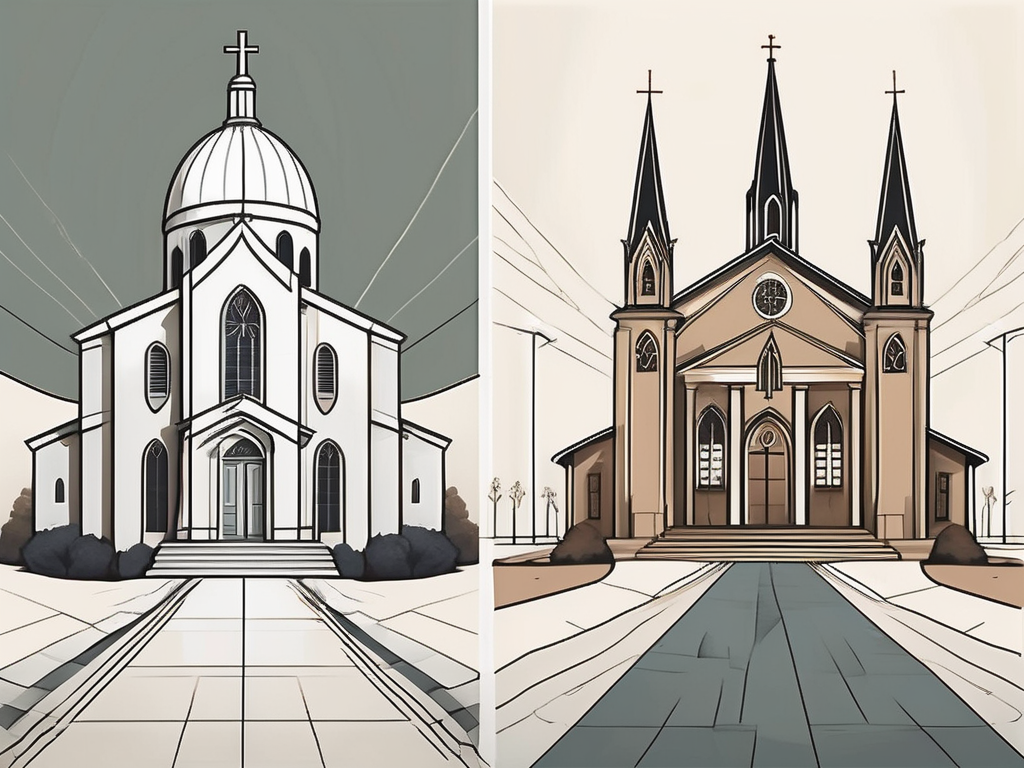The concept of the Rapture has captivated the minds and hearts of many Christians throughout history. But what do Catholics believe about this end times event? In this article, we will explore the Catholic perspective on the Rapture, its biblical references, different interpretations, the Church’s official position, and even compare Catholic and Protestant views. We will also delve into the impact of Rapture beliefs on Catholic faith and practice, including their role in liturgy, prayer, and morality.
Understanding the Concept of Rapture
Before we dive into Catholic beliefs, let’s first grasp the concept of the Rapture. The idea of the Rapture is closely associated with the second coming of Christ. It suggests that before the end of the world, believers will be suddenly taken up to meet the Lord in the air, while unbelievers and those left behind will face tribulation on earth.
But what does it mean to be “taken up to meet the Lord in the air”? This concept has sparked much debate and speculation among theologians and believers alike. Some envision a literal physical event, where believers are physically transported to meet Jesus in the sky. Others interpret it metaphorically, seeing it as a spiritual union with Christ, where believers are united with Him in a profound and transformative way.
While the term “Rapture” itself may not be explicitly mentioned in the Bible, proponents of this concept point to various biblical passages to support their belief. Some of the key references include 1 Thessalonians 4:16-17 and Matthew 24:40-41, which describe the gathering of the elect and the separation of believers from unbelievers.
1 Thessalonians 4:16-17 states, “For the Lord himself will come down from heaven, with a loud command, with the voice of the archangel and with the trumpet call of God, and the dead in Christ will rise first. After that, we who are still alive and are left will be caught up together with them in the clouds to meet the Lord in the air. And so we will be with the Lord forever.”
Matthew 24:40-41 says, “Two men will be in the field; one will be taken and the other left. Two women will be grinding with a hand mill; one will be taken and the other left.”
These passages, among others, have been interpreted by proponents of the Rapture as evidence of a future event where believers will be caught up to meet Jesus in the air.
Different Interpretations of the Rapture
Within the realm of Christian theology, different interpretations of the Rapture have emerged over time. Some view it as a pre-tribulation event, where believers are taken away before a period of great tribulation on earth. This interpretation suggests that believers will be spared from the hardships and trials that will befall the world during the end times.
Others see the Rapture as a post-tribulation event, where believers are raptured after enduring tribulation. According to this view, believers will face the challenges and trials of the end times alongside everyone else, but will be rewarded with the Rapture at the end.
There are also those who believe in a mid-tribulation or pre-wrath Rapture. These interpretations suggest that believers will experience a portion of the tribulation before being raptured, but will be spared from the most severe judgments and wrath of God.
The Catholic perspective, however, offers a unique angle on the concept of the Rapture. Unlike some Protestant denominations that emphasize a literal and specific event, the Catholic Church does not have an official teaching on the Rapture. Instead, the focus is placed on the second coming of Christ and the final judgment, where all souls will be reunited with their resurrected bodies.
While the concept of the Rapture may vary among different Christian traditions, it remains a topic of fascination and contemplation for believers around the world. Whether one interprets it literally or metaphorically, the idea of being united with Christ in a profound and transformative way is a source of hope and anticipation for many.
Catholic Doctrine on End Times
When it comes to end times theology, Catholics emphasize the overarching theme of hope, rather than specific details of the Rapture. The focus is on Christ’s second coming, the general resurrection, and the final judgment.
In Catholic theology, the concept of the end times is seen as a time of great anticipation and expectation. It is a time when believers look forward to the fulfillment of God’s promises and the ultimate triumph of good over evil. This hope is rooted in the belief that Jesus Christ will come again in glory to judge the living and the dead.
The belief in the second coming of Christ is central to Catholic theology. It is seen as the culmination of God’s plan for the world and the fulfillment of His promises. Catholics affirm their belief in this event, which is supported by biblical passages such as Acts 1:11 and Matthew 24:30.
Catholic Beliefs About the Second Coming of Christ
Catholics affirm their belief in the second coming of Christ, where He will come again in glory to judge the living and the dead. This belief is rooted in biblical passages like Acts 1:11 and Matthew 24:30.
According to Catholic doctrine, the second coming of Christ will be a glorious and transformative event. It is believed that Jesus will return in power and majesty, accompanied by the angels, to establish His eternal kingdom. This event will mark the end of human history as we know it and the beginning of a new and perfect age.
During the second coming, Catholics believe that all people will be raised from the dead and reunited with their bodies. This general resurrection is seen as a sign of God’s power over death and His desire to restore and renew all creation.
In preparation for the second coming, Catholics are called to live lives of faith, hope, and love. They are encouraged to remain vigilant and watchful, eagerly awaiting the return of Christ. This anticipation is not driven by fear or anxiety, but by a deep trust in God’s promises and a desire to be found faithful when He comes again.
The Role of Judgment in Catholic Eschatology
For Catholics, the idea of judgment plays a vital role in eschatology. It emphasizes the individual’s accountability for their actions and the need for reconciliation and repentance. The focus is on the final judgment of each person’s soul rather than a specific event like the Rapture.
In Catholic theology, judgment is seen as an act of God’s justice and mercy. It is believed that at the end of time, each person will stand before God to give an account of their life. This judgment is not meant to be a harsh or punitive act, but rather an opportunity for individuals to acknowledge their sins, seek forgiveness, and be reconciled with God.
The Catholic Church teaches that God’s judgment is based on His perfect knowledge and understanding of each person’s thoughts, words, and actions. It is a fair and just judgment, taking into account the circumstances and intentions behind each person’s choices. Catholics believe that God’s mercy is always available to those who sincerely seek it, and that through repentance and conversion, individuals can find forgiveness and eternal life.
While the specific details of the end times remain a mystery, Catholics find comfort and hope in the belief that Christ will come again to bring about the fulfillment of God’s plan. The focus is not on predicting or speculating about the future, but on living faithfully in the present, trusting in God’s love and providence.
The Rapture in Catholic Theology
While the concept of the Rapture is not a prominent aspect of Catholic theology, it has been a subject of theological discourse within the Church.
The Rapture, a belief popularized by many Protestant denominations, refers to the idea that believers will be taken up to heaven before a period of tribulation on Earth. However, the Catholic Church does not have an official doctrine on the Rapture as understood by many Protestant denominations. It acknowledges various interpretations but does not endorse any specific view.
The Church’s Official Position on the Rapture
The Catholic Church, guided by its rich tradition and teachings, approaches eschatology, the study of the end times, with a different emphasis. While the Church affirms the second coming of Christ and the general resurrection, it does not explicitly teach a separate event known as the Rapture.
Instead, the Catholic Church focuses on the belief in the Parousia, the glorious return of Christ, which encompasses the final judgment, the resurrection of the dead, and the establishment of God’s eternal kingdom. This belief is rooted in the teachings of Jesus Christ and the apostles, as well as the writings of early Church fathers.
Within Catholic theology, debates and discussions about the Rapture have taken place. Some theologians argue that the Rapture is not a separate event but rather an integral part of Christ’s second coming and the general resurrection. They propose that the idea of believers being caught up to meet the Lord in the air, as described in 1 Thessalonians 4:17, should be understood within the context of the final judgment and the resurrection of the dead.
These theologians argue that the Rapture, if understood as a distinct event, can lead to a fragmented understanding of eschatology and overlook the unity of Christ’s second coming and the fulfillment of God’s plan for humanity. They emphasize the importance of interpreting biblical passages in light of the broader theological framework of the Catholic faith.
On the other hand, some Catholic theologians view the concept of the Rapture as a valid interpretation within the diversity of Christian thought. They acknowledge that while it may not be explicitly taught in Catholic doctrine, it can be seen as a legitimate understanding of certain biblical passages.
Overall, the Catholic Church encourages theological dialogue and exploration, recognizing that different perspectives can contribute to a deeper understanding of the mysteries of faith. While the concept of the Rapture may not hold a central place in Catholic theology, it remains a topic of interest and discussion among theologians and believers alike.
Comparing Catholic and Protestant Views on the Rapture
Now, let’s examine how the Catholic perspective on the Rapture differs from that of many Protestant denominations.
The topic of the Rapture has been a subject of theological debate and discussion among Christians for centuries. While both Catholics and Protestants share a belief in the second coming of Christ, their views on the specifics of the Rapture differ.
Key Differences in Beliefs
A significant difference lies in the timing of the event. While some Protestants hold to a pre-tribulation Rapture, Catholics focus on the second coming of Christ and the final judgment rather than a specific moment of being taken up.
For Catholics, the emphasis is on the return of Christ and the establishment of His kingdom on earth. They believe that at the end of time, there will be a general resurrection of the dead, where both the righteous and the unrighteous will be raised to face the final judgment. This judgment will determine their eternal destiny.
Protestants, on the other hand, often adhere to the belief in a pre-tribulation Rapture. This view suggests that before the great tribulation, believers will be caught up in the air to meet Christ, escaping the trials and tribulations that will occur during that time. This event is seen as a way for God to protect His faithful followers from the wrath to come.
While both views acknowledge the second coming of Christ and the final judgment, they differ in their understanding of the timing and sequence of events leading up to these ultimate realities.
Shared Beliefs Between the Two Denominations
Despite their differences, Catholics and Protestants share common ground in their belief in the second coming of Christ, the resurrection of the dead, and the final judgment. Both recognize the importance of being spiritually prepared for Christ’s return.
Both Catholics and Protestants believe that Jesus will come again in glory to judge the living and the dead. They affirm the biblical teachings that at the end of time, all people will be raised from the dead and will stand before God to give an account of their lives.
Furthermore, both traditions emphasize the need for believers to be spiritually prepared for Christ’s return. They encourage their followers to live lives of holiness, love, and service, knowing that one day they will have to answer to God for their actions.
In conclusion, while there are differences in the specific beliefs about the Rapture between Catholics and Protestants, both traditions share a common hope in the second coming of Christ and the final judgment. The details may vary, but the underlying belief in the ultimate return of Jesus and the need for spiritual readiness unites Christians across denominational lines.
Impact of Rapture Beliefs on Catholic Faith and Practice
Rapture beliefs, although not central to Catholic faith, can still influence the way Catholics approach their faith and practice.
The Role of the Rapture in Liturgy and Prayer
While the Rapture itself is not explicitly incorporated into Catholic liturgy and prayer, the anticipation of Christ’s second coming is often reflected in prayers for hope, forgiveness, and the coming of God’s kingdom.
How Rapture Beliefs Influence Catholic Morality and Ethics
The belief in the final judgment as opposed to the Rapture can impact Catholic morality and ethics. It emphasizes the need for virtuous living and responsible stewardship of God’s creation.
In conclusion, while the Rapture may not be a prominent aspect of Catholic beliefs and theology, the hope of Christ’s second coming and the final judgment remain central. Catholics approach the end times with a focus on personal accountability, reconciliation, and virtuous living rather than a specific event like the Rapture. This perspective shapes their faith, liturgy, and ethical practices, providing a unique lens through which Catholics view the end times.
